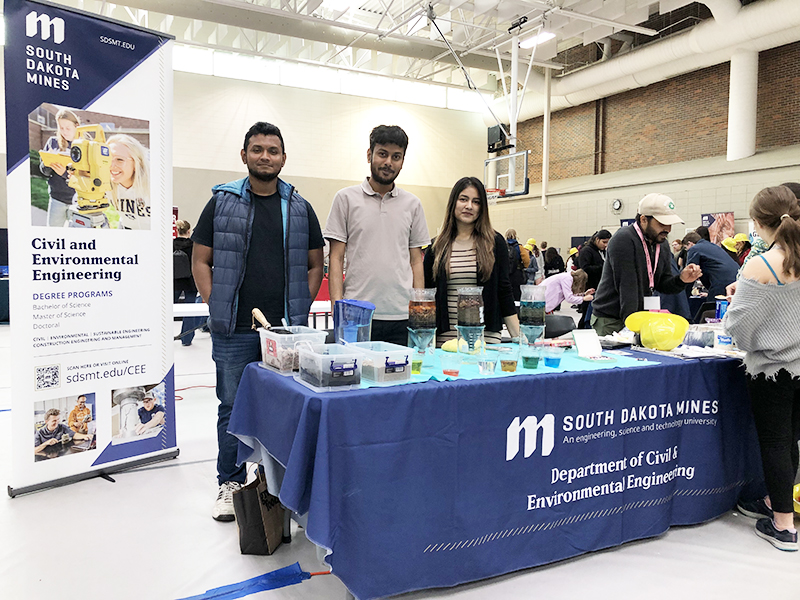South Dakota Mines Professor Uses AI to Study Disinfection Byproducts in Treated Drinking Water

To keep drinking water safe, disinfectants like chlorine are essential—but they come with a hidden cost. When these chemicals react with natural organic matter, they can create harmful byproducts that end up in the treated drinking water.
Now, backed by a five-year, $550,000 National Science Foundation CAREER grant, a South Dakota Mines professor is harnessing the power of AI to better understand—and ultimately minimize—these compounds.
New AI technology will help streamline and enhance the existing data by determining what the byproducts are, how they are formed and their toxicity, according to Tao Ye, Ph.D., Mines assistant professor of civil and environmental engineering, and principal investigator.
“The considerable number of disinfection byproducts (DBPs) coupled with limited data on their occurrence and toxicity, complicates efforts to determine which DBPs would be prioritized for future studies and regulations,” Ye said.
Current methods for assessing DBP risks face challenges in effectively identifying which DBPs pose the highest health risks.
“This project will use machine learning to determine the toxicity of DBPs in drinking water and develop strategies for reducing the presence of high-risk DBPs in drinking water treatment,” Ye said. “After the machine learning, we are going to identify a few of the chemicals that are potentially very harmful in the water and then do experiments in the lab.”
The project combines machine learning and lab work to build a comprehensive database of both regulated and unregulated DBPs, fill key data gaps, and identify high-risk compounds based on how often they occur, at what levels, and how toxic they are.
After creating the database, Ye and his team, which includes two graduate students, will go out to various water treatment plants to take samples and compare the new findings with the AI data to make sure everything is correct.
The ultimate goal is to create predictive tools to guide future regulations and smarter water treatment.
“The project results will improve drinking water safety and public health, and train students to use AI and data to solve problems of water quality,” Ye said.
The grant also includes a K-12 educational component where Ye plans to create student-led STEM camps, develop modules to develop AI literacy and conduct workshops for students on navigating graduate studies.
“The completion of this project will support the development of data-driven solutions in environmental engineering, enhance water quality and public health, and help train the next generation of scientific leaders,” Ye said.
The Faculty Early Career Development (CAREER) Program is a foundation-wide activity that offers the NSF’s most prestigious awards in support of early-career faculty who have the potential to serve as academic role models in research and education and to lead advances in the mission of their department or organization. Activities pursued by early-career faculty should build a firm foundation for a lifetime of leadership in integrating education and research.
Ye credited the university's Department of Civil and Environmental Engineering, the Office of Sponsored Programs, and colleagues including Molly Moore, associate vice president for enrollment management, Dr. Marc Robinson, associate department head for the civil and environmental engineering department, Dr. Andrea Surovek former director of Mines Office of Faculty Development and Advancement, and Dr. Katrina Donovan, a senior lecturer in the Department of Materials and Metallurgical Engineering, for their support and contributions to the proposal and its educational components.